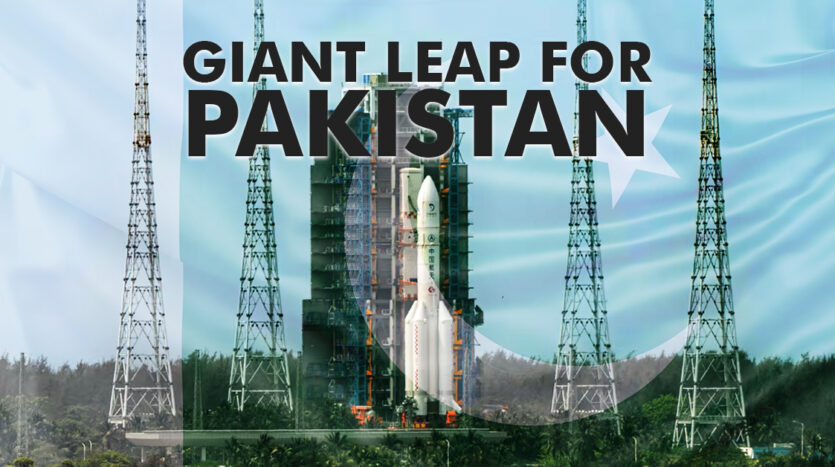Giant Leap for Pakistan
Celebrating iCube-Q and the Future of Pakistani Space Exploration.
On May 3rd, 2024, Pakistan etched its name in the annals of space exploration with the launch of iCube-Q, the country’s first lunar mission. This historic event, celebrated across Pakistan, marks a significant step forward in the nation’s scientific and technological journey. Here at Sultan’s Website, we’re not just about bricks and mortar; we’re also passionate about innovation and progress. In this blog post, we delve into the iCube-Q mission, its significance, and the potential impact it has on Pakistan’s future.
What is iCube-Q?
iCube-Q, also known as iCUBE-Qamar (Qamar meaning “Moon” in Urdu), is a miniaturized satellite called a CubeSat. Developed by the Institute of Space Technology (IST) in collaboration with China’s Shanghai University, iCube-Q successfully hitched a ride to the Moon aboard China’s Chang’e-6 mission.
The Mission and its Achievements:
After a successful launch, iCube-Q deployed from the Chang’e-6 spacecraft on May 8th and entered lunar orbit. This marked a historic achievement for Pakistan, placing the nation among a select group of countries with a lunar presence.
The primary objective of iCube-Q is to gather data and images of the lunar surface. Equipped with two optical cameras, the satellite is capturing high-resolution images, offering valuable insights into the Moon’s geological makeup. This data will contribute to our scientific understanding of our nearest celestial neighbor.
Significance of iCube-Q for Pakistan:
The iCube-Q mission holds immense significance for Pakistan on several fronts:
- Scientific Advancement: The mission signifies a leap forward in Pakistan’s scientific research capabilities. Data collected by iCube-Q will contribute to scientific research not only in Pakistan but also on a global scale.
- Technological Expertise: Developing and launching iCube-Q demonstrates Pakistan’s growing expertise in the field of space technology. This paves the way for future endeavors, fostering innovation and technological advancement.
- International Collaboration: The successful collaboration with China on the Chang’e-6 mission opens doors for future international partnerships in space exploration, further propelling Pakistan’s standing in the global scientific community.
- Inspiration for the Youth: The iCube-Q mission serves as a powerful inspiration for young Pakistanis, igniting their curiosity about science and technology and encouraging them to pursue careers in STEM fields.
The Future of Pakistani Space Exploration:
The success of iCube-Q is just the beginning. Pakistan’s space exploration program is poised for further development, with several exciting prospects on the horizon:
- Future Lunar Missions: Building on the iCube-Q experience, Pakistan aims to develop more advanced lunar missions, potentially leading to landers and rovers in the future.
- Collaboration and Partnerships: Pakistan is expected to continue seeking international collaborations with other spacefaring nations, accelerating its space program’s progress.
- Focus on Peaceful Exploration: Pakistan has emphasized its commitment to peaceful space exploration, contributing to scientific knowledge and promoting international cooperation.
Sultan’s Website: Your Partner in Progress
While Sultan’s Website focuses on real estate in Pakistan, we celebrate advancements that contribute to the nation’s overall progress. The iCube-Q mission signifies a giant leap forward for Pakistan, and we’re proud to share this story with our readers.
Conclusion:
The iCube-Q mission is a historic moment for Pakistan, marking the beginning of a new era in space exploration. This achievement not only fuels scientific progress but also inspires the nation’s youth and paves the way for future advancements. Sultan’s Website celebrates this success and remains committed to keeping our readers informed about Pakistan’s exciting journey towards a brighter future.

